Hey all! Real Farmer Jeff here.
I’m here with an important bit of knowledge you must know before not only planting your tomatoes, but before you purchase the seeds!
If you’re growing tomatoes this season, it is crucial to understand that there are two main types of tomato plants:
- Determinate
- Indeterminate
These two types grow in distinct ways, affecting everything from how they produce fruit to how they should be pruned and supported.
Whether you’re looking for a compact plant that ripens all at once or a vine that keeps producing throughout the season, knowing the difference will help you choose the right tomato for your garden.
In this guide, I’ll break down the key characteristics of each type and help you decide which is best for you!
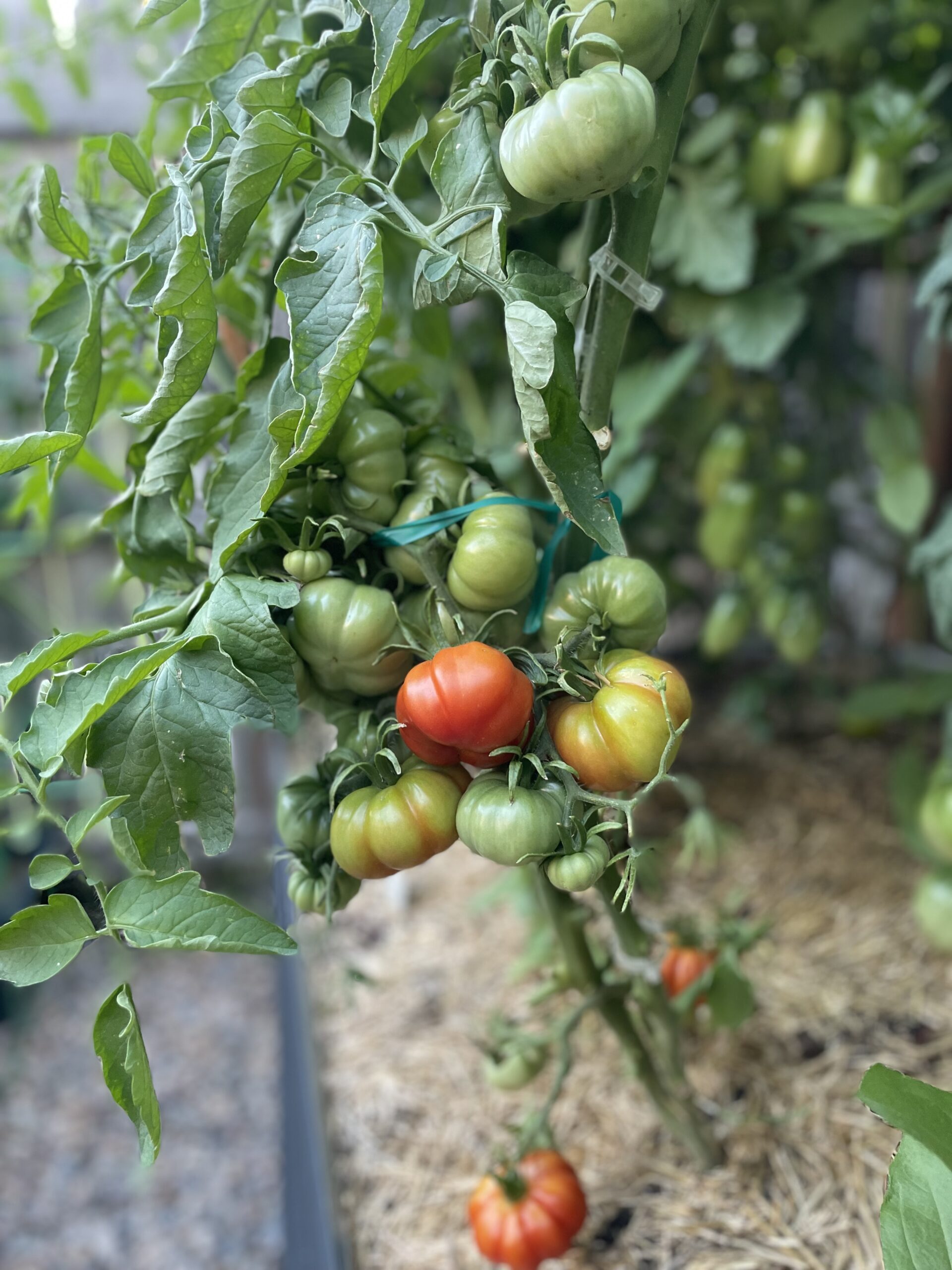
Tomato Plant Size
Determinate tomato plants are often referred to as “bushy” varieties because they grow to a fixed height and stop growing once they reach maturity (which is about four feet tall).
Indeterminate tomatoes are the opposite of determinate varieties in that they continue to grow throughout the season, sometimes reaching heights of 6-10 feet or more (the height of a tomato plants’ trellis can also impact height).
The easiest way to remember the names is because determinate tomato plants have a “determined” size while indeterminate tomato plants have an “undetermined” size.
Little-known tip: The classic wire cone-shaped trellis is often ineffective because it’s commonly used for indeterminate tomato varieties, which grow too tall for the structure to support properly. These trellises are best suited for determinate varieties, which have a more compact growth habit.


Tomato Varieties
Many of the most unique and flavorful heirloom tomato varieties fall under the indeterminate category, offering a longer harvest period and continuous fruit production throughout the growing season. These varieties will slowly produce their fruit over the season while they continue to vine outward. Heirloom varieties such as Brandywine, Cherokee Purple, and Beefsteak are classic examples of indeterminate types, offering a wider range of flavors and unique shapes.
In contrast, determinate tomatoes tend to be more standard in size, shape, and taste, such as the Roma tomato.
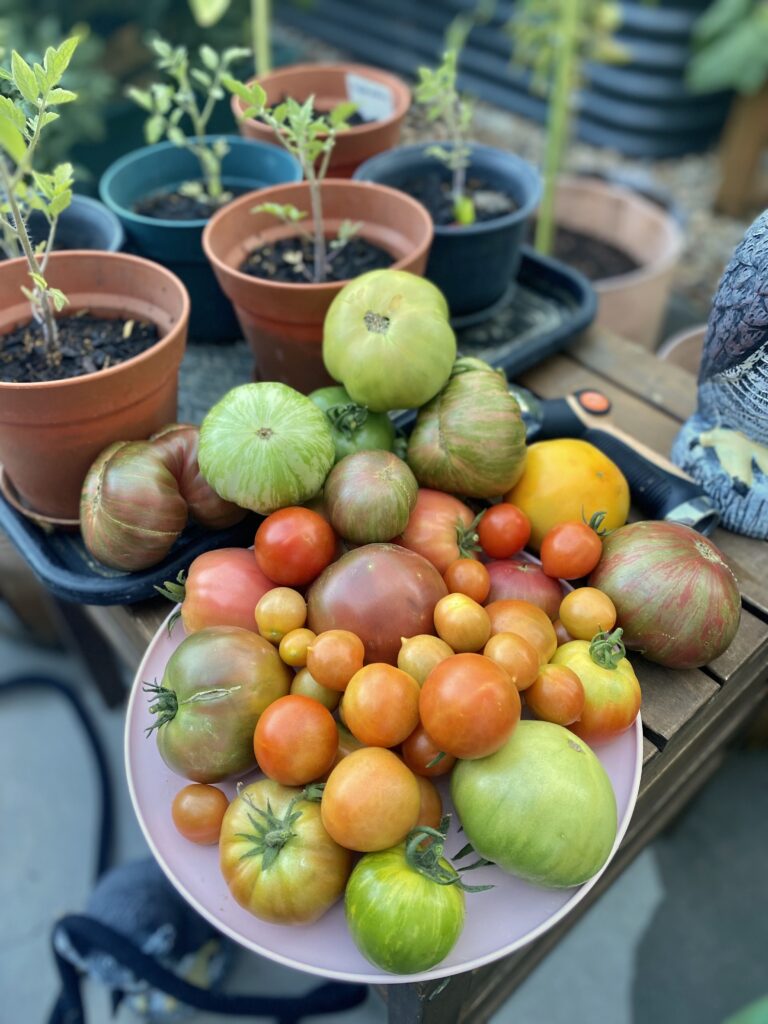
Timing of Harvest
The timing of harvest for determinate and indeterminate tomatoes differs significantly due to their growth habits. Both have their pros and cons, depending on what your priorities are as a gardener!
Determinate tomatoes tend to produce most of their fruit at once, typically ripening over a short period of 1-2 weeks. This makes them ideal for gardeners who want a concentrated harvest, perfect for canning, making sauces, or if you want to make a big batch of salsa.
Since they stop growing once the fruit is set, the entire plant’s production comes to an end shortly after the harvest, meaning you get a one-time crop.
On the other hand, indeterminate tomatoes continue growing and producing fruit throughout the entire season. As the plant matures, it will gradually ripen tomatoes over an extended period, often until the first frost. This provides a steady, ongoing harvest, allowing gardeners to enjoy fresh tomatoes throughout the summer and into the fall.
The trade-off is that it may take longer for all the tomatoes to ripen, but you’ll have a continuous supply of fruit for a much longer stretch of time. Indeterminate plants are ideal if you are wanting the juiciest tomato sandwiches or beautiful tomatoes for caprese.
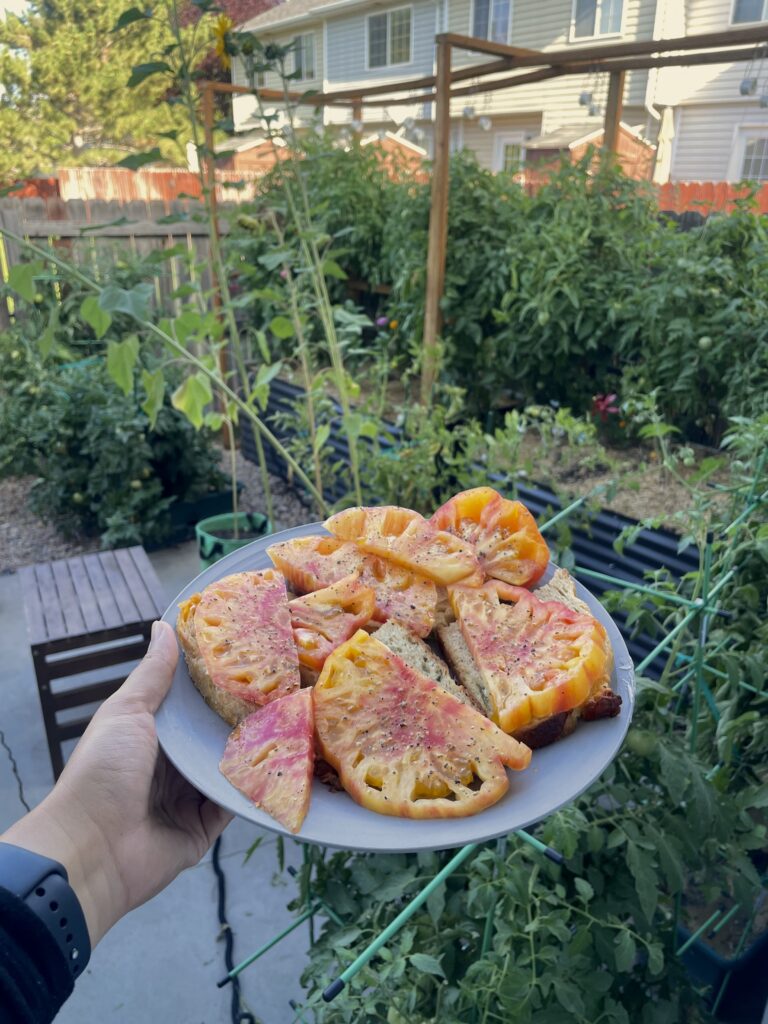
Pruning and Trellising
Understanding the type of tomato plants you’re growing is crucial because indeterminate and determinate varieties require different pruning methods.
Pruning is essential because it:
- Helps promote healthier growth
- Encourages better air circulation
- Ensures that the plant’s energy is focused on producing high-quality fruit
- Helps manage the plant’s size, preventing overcrowding and improving overall yields
Because determinate varieties are a fixed height, you want to prune them a lot less aggressively. This is so that you don’t reduce its fruit growth. Instead, let your determinate tomato plants grow outward, pruning only the lowest branches that could potentially harbor soil-borne diseases or obstruct airflow, which may lead to humidity issues.
With indeterminate tomatoes, you can prune them more aggressively upward because they will keep on growing. It’s especially beneficial to purchase or construct a taller trellis that provides the tomato plants with more space to grow vertically. I personally like to use these tomato clips that I can clip onto a vertical string trellis.
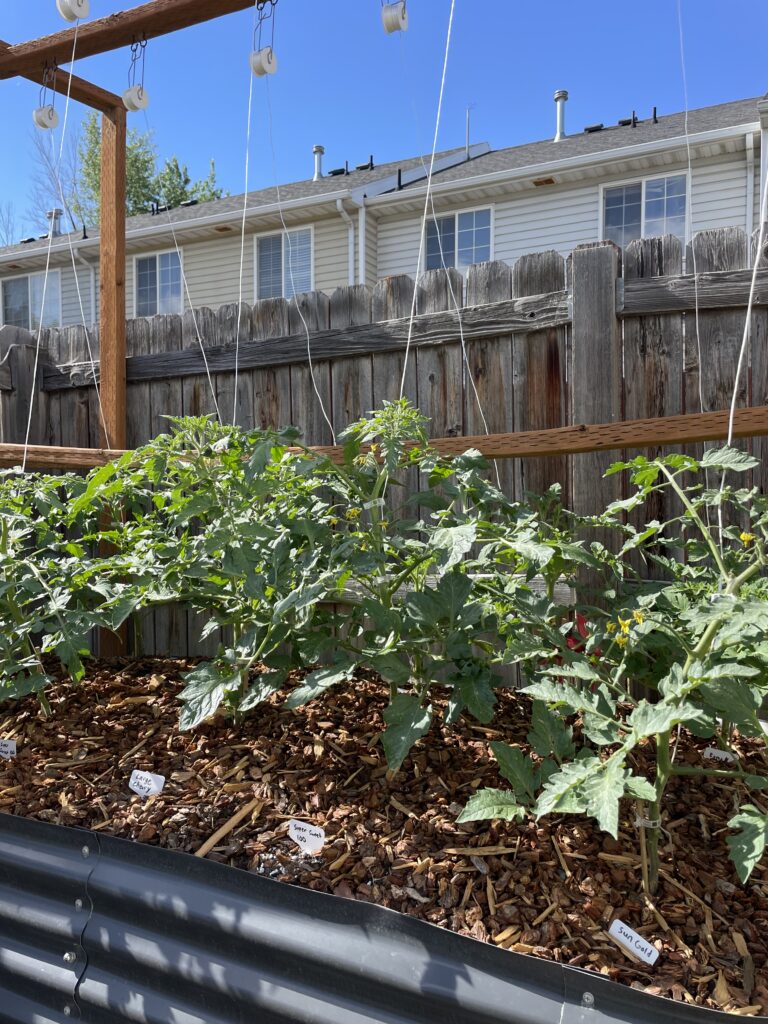
I am always a little shocked with how many seed packets don’t even list out whether a tomato is a determinate or indeterminate variety.
However, it is worth your while to understand the plant type you are growing so that you will be prepared to grow and harvest them in the ideal way! Best of luck in your endeavors! Be sure to follow me on Instagram to see updates on my garden.
If you enjoyed this, check out my other gardening blog posts:
- How to Start a Garden on a Budget for Under $100
- 4 Reasons Why Tomatoes Are the Best Vegetable to Grow
- My Garden Setup: 3 Best Garden Containers for Every Gardener
- When to Plant Indoors vs. Outdoors: A Seasonal Guide for Gardeners
- Essential and Nice-to-Have Garden Products for Your Perfect Setup
- Best Tomatoes of 2024: My Top 10 Favorite Varieties
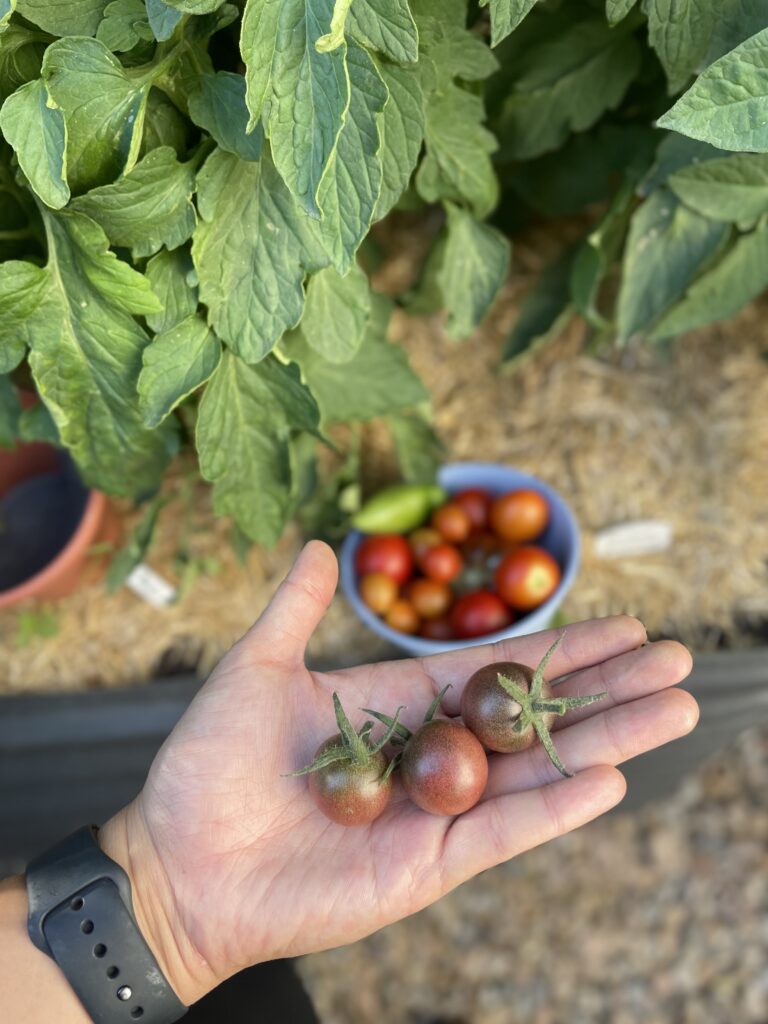




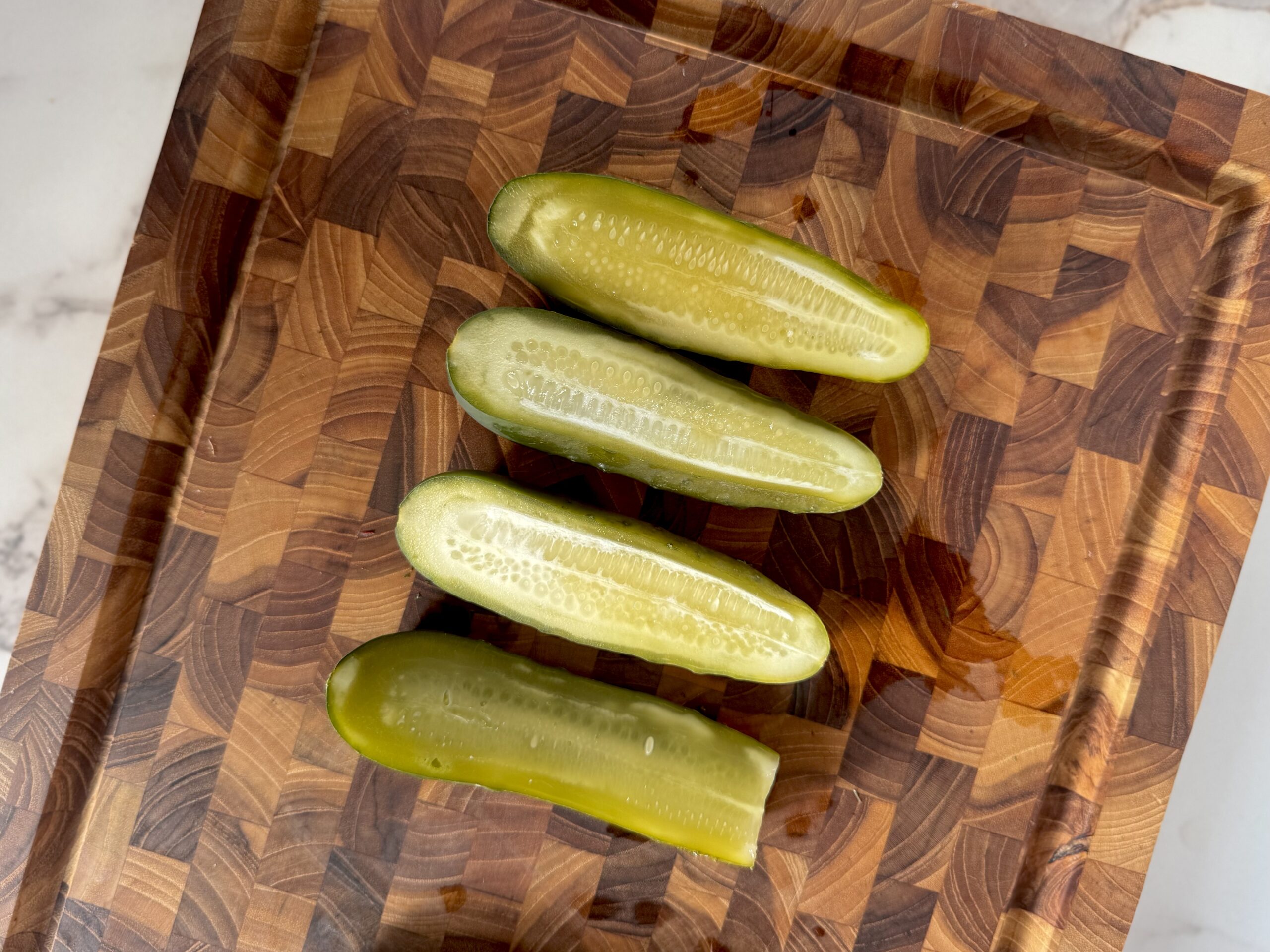
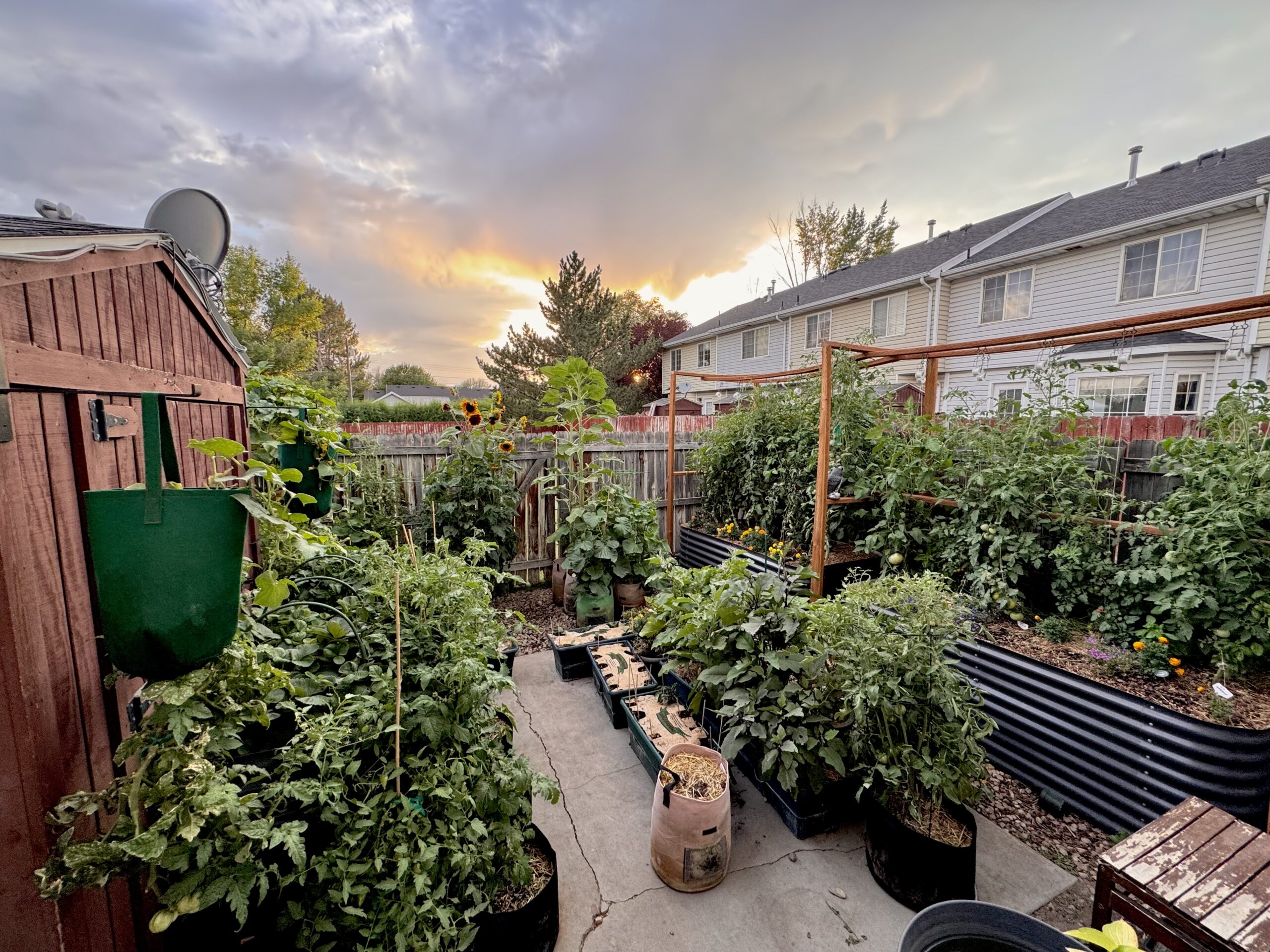
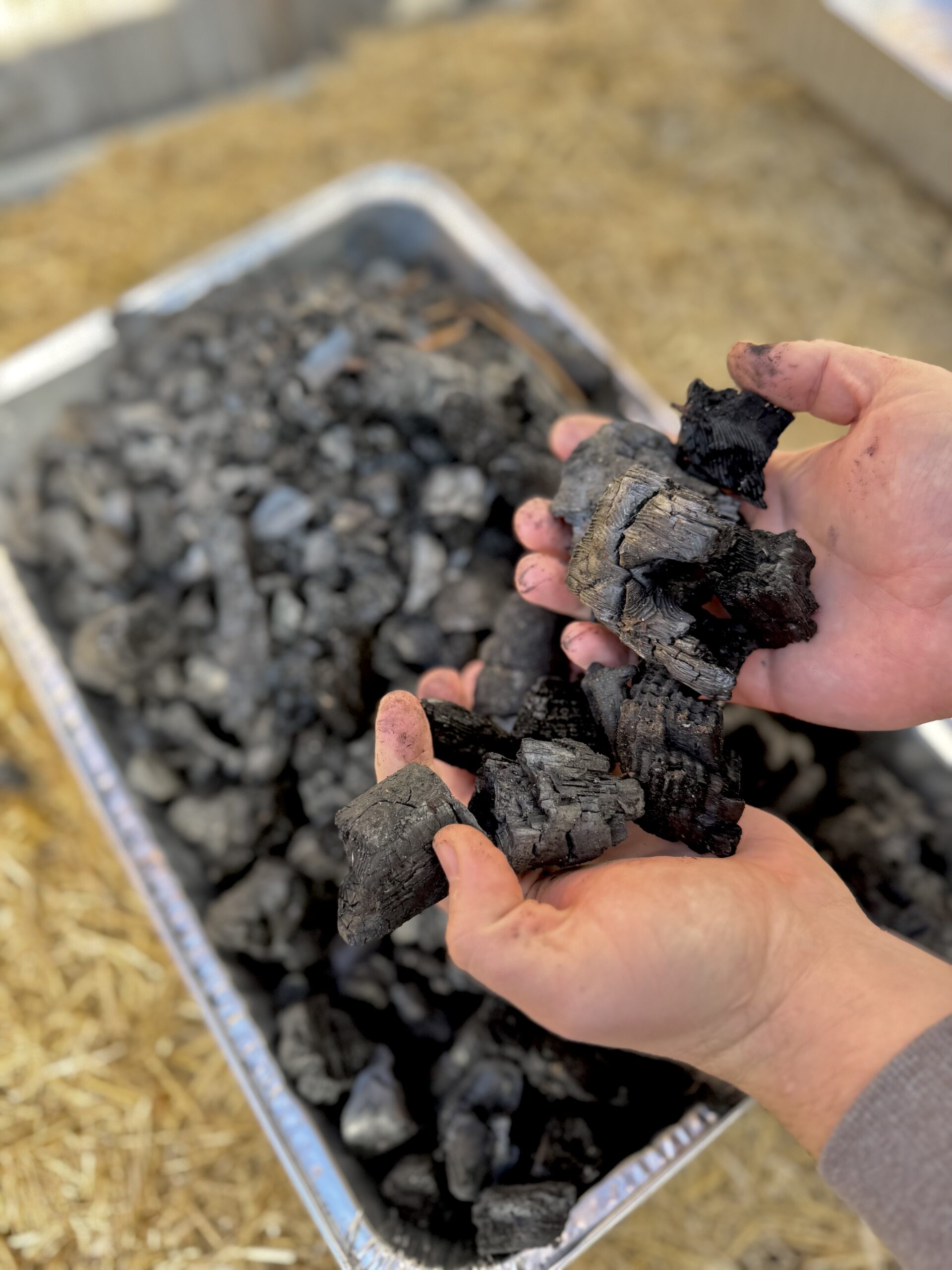
Indeterminate vs determinate is so crucial to know especially for pruning. One summer I pruned my romas like indeterminates by accident and messed up my harvest.
Knowing when to prune and how to support each type made my garden way better this season!